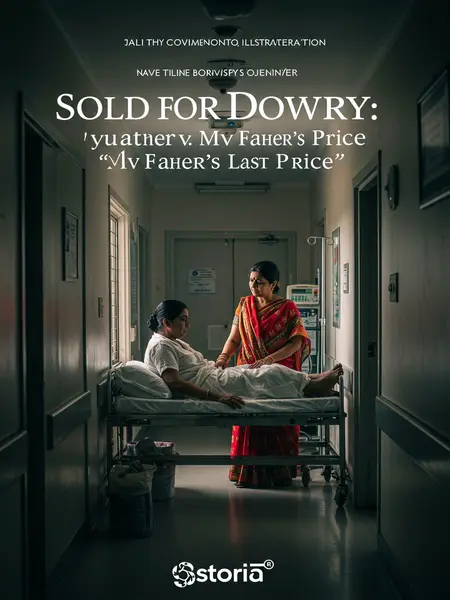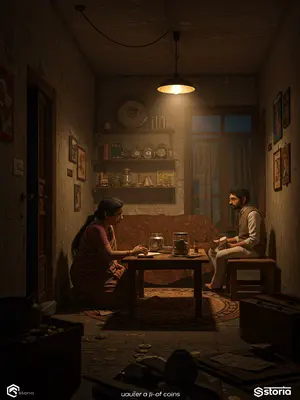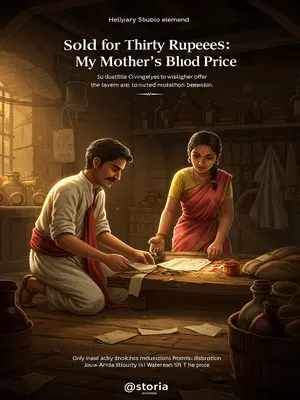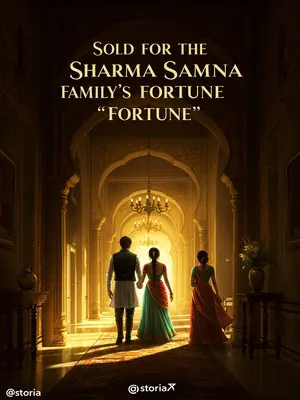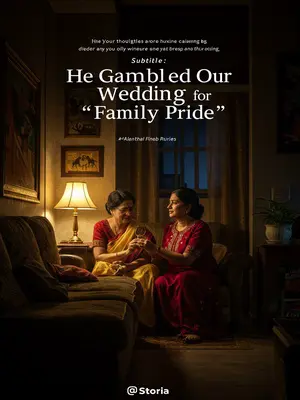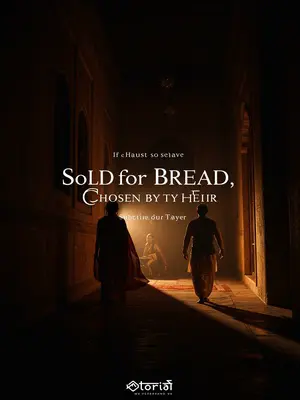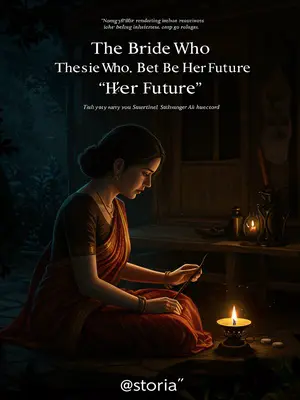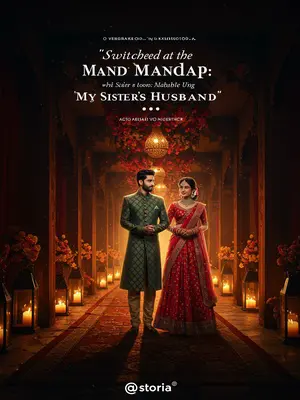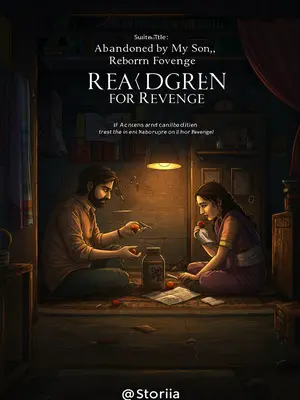Chapter 3: Cracks in the Family
It was already pitch dark when I reached my hotel. Outside, only the glow of scattered diyas and the distant boom of crackers broke the silence. My legs ached from the drive, my throat parched, but inside I was burning with anger and humiliation.
After six hours on the road, Ananya’s family hadn’t even offered me a glass of water. I thought of my mother’s kitchen—no guest ever left without chai, even if all she had was leftover rotis and achaar.
I checked into a cheap lodge, its air thick with old paint and damp. The mattress sagged beneath me, and the ceiling fan’s buzz was louder than my thoughts. No matter how I tossed, the ache in my heart wouldn’t let me rest.
I video-called my parents, voice trembling as I told them everything. Their faces filled the screen—my father staring into space, my mother’s dupatta drawn over her face, blinking away tears she didn’t want me to see.
The silence hung heavy. My father rubbed his forehead, my mother’s eyes glistened. I asked, “Unka demand sunke lagta hai shaadi karni bhi chahte hain ya nahi?”
I needed their reassurance, any word to make sense of this mess.
Dad tried, “Ek hi beti hai unki… thoda zyada mang rahe hain, par soch suraksha ke liye hai…”
He scratched his head, his voice tired. I knew he didn’t mean it—he was afraid I’d break off the wedding.
My parents were traditional. In our neighbourhood, marriage was everything. When someone’s son married, aunties gossiped for weeks. My parents wanted that happiness too.
Before Ananya, they’d stop to play with kids on the street, nudging me: “Kab dega humein pota ya poti? Tabhi toh zindagi poori hogi.”
At family functions, my mother would braid a little girl’s hair and whisper, “Jaldi hi, inshaallah, apne ghar mein bhi koi aayega.”
After I started seeing Ananya, they began knitting sweaters for their future grandchild—half the wardrobe was filled with tiny winter clothes before the match was even set. My mother would show her handiwork to the neighbours, “Bahu ke bache ke liye!” My father would nod, making plans for the naamkaran.
Their only fight was whether to wish for a granddaughter or grandson—soon, they’d laugh and agree either would do.
These dreams weighed on me. My heart ached for them, for everything they’d sacrificed.
But now, even starting this journey seemed impossible.
“Papa, kya yeh choti baat hai? Chaubis lakh, saale ke liye flat bhi lena hai? Kya hum log sirf unka ATM hain?” My voice shook, anger and helplessness mingling.
Mum sighed. “Actually, hum toh kab se gaon mein settle hone ka soch rahe hain. Flat bechna mushkil nahi hai…”
She dabbed her eyes with the edge of her faded pink pallu, pretending to look for something in her purse. Letting go of her dreams seemed as simple as folding away a dupatta.
“Maa, kya bol rahi ho? Gaon itna door hai—kuch ho gaya toh kaun madad karega? Main zindagi bhar pachtata rahunga.”
The words came out sharper than I meant. I couldn’t bear the thought of losing them to senseless tradition.
Dad’s voice was soft, “Rohan, Ananya acchi ladki hai. Paison ke chakkar mein lose mat kar dena. Paise toh wapas aa sakte hain, par insaan nahi. Dahej ke liye hum koshish karenge, tum bhi unse baat karo—shayad kam ho jaye ya kishton mein de dein…”
His words were heavy with love and exhaustion. He just wanted peace, even if it meant another sacrifice.
As I hung up, my phone buzzed—a WhatsApp notification: ‘Beta, sab theek hai na?’ from Mrs. Verma, our nosy neighbour. Even hundreds of kilometres away, the neighbourhood’s eyes followed me, and the pressure of community gossip tightened around my chest.
I stared at the ceiling fan, its blades spinning in slow circles, mocking my helplessness. I realised: this wasn’t just my battle—it was my whole family’s.
